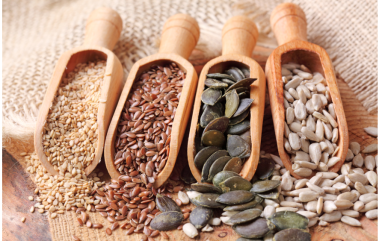Shhhh! Don’t Ask..Don’t Tell! This has been the mindset of female athletes, coaches, and the entire sporting community on the topic of menstruation all over the world. In India, the taboo surrounding menstruation is even worse as it is compounded by cultural and religious norms and is associated with shame and embarrassment. Even when a female athlete overcomes this cultural taboo and mentions it, it is unfortunately perceived as a sign of female weakness and an excuse for underperformance.
Since menstruation is not discussed openly, many young athletes and their coaches have very vague ideas about the science behind menstruation and its impact on an athlete’s performance during training and tournaments. They also do not know the importance of tracking their menstruation cycles and the steps that can be taken to manage and probably even improve performance during menstrual periods. Thankfully, of late a few elite female athletes who have achieved significant success in their respective sports have come out in open to acknowledge the impact of menstruation on their mental and physical health.
When England’s Tennis player Heather Watson lost in the first round of 2015 Australian Open, she said in an interview, “I think it’s just one of these things that I have, girl things.”. Though she didn’t say it openly, it was a bold statement and caught everybody’s attention because menstruation and its impact on sporting performance was never spoken publicly.

Figure 2: Source (https://www.refinery29.com/en-us/menstruating-and-playing-sport#slide-3)
Indian cricketer Jemimah Rodrigues once said, “Those who don’t know won’t understand”. This is so true. If athletes do not talk openly, coaches will not understand the issue and female athletes will continue to suffer in silence. Only when people openly discuss, there can be some positive interventions to help female athletes overcome the issues associated with menstruation. Hence it is very important to break the silence and at least start talking about it without hesitation.
What is Menstruation Cycle
Menstrual cycle is a term used to describe the sequence of events that occur within the female body as it prepares for the possibility of pregnancy each month. An egg is released from the ovary and the lining of the uterus thickens. If the egg is not fertilized before the end of the cycle, the lining of the uterus is shed through the vagina. This monthly shedding of the lining of the uterus is called menstruation.
Menstruation is also known by other terms like menses, menstrual period, cycle or period. A menstrual cycle is considered to begin on the first day of a period. The average cycle is 28 days long. However, a cycle can range in length from 21 days to about 35 days.
Menstruation is an important part of the human reproductive system. It is a very normal process just like other life processes like respiration or digestion that we openly talk about. So why this stigma against menstruation? There is absolutely nothing to be ashamed of or to be embarrassed about menstruation.
Impact on Physical and Mental Health
There are four phases in each menstrual cycle which are triggered by the rise and fall of different hormones in the body. Each hormone has a different but very important role to play during these four phases. However different women experience different symptoms during each of these phases due to these hormonal changes.
The typical physical symptoms experienced by women during menstruation/periods are:
- Abdominal cramps
- Fatigue and Muscle weakness
- Headaches
- Bloating

Along with these, many women also experience premenstrual syndrome (PMS) resulting in emotional, and physical symptoms like mood swings, depression, insomnia, bloating, breast tenderness and fatigue. PMS symptoms can begin as early as 14 days before the period starts.

Table 1: Symptoms During Menstruation Cycle
There is some research being done on the impact of menstruation cycle on sporting performance. However, measuring the impact is not very straightforward as different women suffer different intensities of symptoms in each cycle. However, in sports, especially at the highest level, even a small margin of physical or mental fitness issue can create a huge difference in the outcome. In fact, it can even lead to injuries. Hence it is very important for women athletes to track their menstruation cycles and the symptoms they experience in each phase. Once the impact of menstruation on an athlete is understood, appropriate actions like tracking, nutrition, exercise regime, planning the training schedule and counselling can be done to help the athlete perform better. However, this needs athletes, coaches and physios to get together and have open discussions without any hesitation.
Conclusion
Many women athletes face different levels of physical and emotion distress during their menstruation cycle that can affect their performance. Many of these physical and emotional symptoms tend to occur in a predictable pattern in every cycle. Hence it is important for athletes to keep a track of their cycles and the associated symptoms. This will help them to manage these issues via different methods like appropriate nutrition, specific exercise regime or even sometime medications if necessary. The athlete’s support system (coaches, managers etc) should encourage open discussions on this topic so that necessary actions can be taken to help the athlete perform to her true potential during important sporting events
.
References:
- https://my.clevelandclinic.org/health/articles/10132-normal-menstruation
- https://www.mayoclinic.org/diseases-conditions/premenstrual-syndrome/symptoms-causes/syc-20376780
- https://www.healthline.com/health/womens-health/stages-of-menstrual-cycle#menstrual




